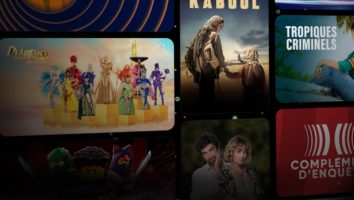Another year, another work stoppage in the world of professional sports. Ho hum.
Whether or not the NBA and the players’ union can resolve their differences (as of mid-December, neither side had showed signs of budging), fans are already making their view of the billionaires-vs-millionaires squabble known at the check-out line. Across the board, retail sales of NBA licensed merchandise are down dramatically. Lockout-weary retailers, hoping to dodge the brunt of consumer resentment, have scaled back or cancelled orders of NBA product altogether. It all makes for a worst case scenario for the league’s licensees, who find themselves stuck with merchandise that nobody wants.
‘It’s been devastating. There are no sales,’ says Steven Piles, sales director at Team Designs, which manufactures NBA-logoed novelty alarm clocks for kids. The Rahway, New Jersey-based company signed a multiyear licensing agreement with the league in June, but Piles says his company won’t begin production on items until play resumes and orders start to come in.
Starter Merchandise, an NBA apparel licensee since the mid-1980s, has run into similar retailer reticence for its authentic team jerseys, which it produces for nine of the league’s teams, according to Starter spokesperson Robin Wexler.
So far, the NBA league office has been preaching patience and understanding to its licensees.
‘Most of the companies we’re in business with are also in business with the other professional leagues and unfortunately, in the 1990s, nearly every other league has been through what we’re experiencing now,’ says Rick Welts, president of NBA Properties.
While the NBA remains sympathetic to the plight of licensees, says Welts, it has no plans in place to introduce any form of compensation for the revenues companies are losing. ‘Those aren’t conversations we’re engaging in, because I don’t think there’s a way to know the extent of the impact the stoppage would have had. . . . For now, we’re relying on the confidence of our partners that we will do the right thing once the [lockout] is over,’ says Welts.
What the right thing is, at this point, is up for debate. Past examples of lockouts in other professional sports organizations, such as the NHL (1995) and MLB (1994), led leagues to implement various compensation measures. After play resumed in the NHL in January of 1996, the league evaluated each licensee on a case-by-case basis. Depending on criteria such as the length of the stoppage and the number of years a company had been a licensee, the NHL would offer contract extensions, lower royalty rates or money, says NHL spokesperson Tracey Cohen. In May 1995, following the cancellation of the World Series, sources say MLB introduced a similar set of remedies to appease its licensees. In some instances in the NHL, companies beat the league to the punch, demanding that strike or lockout clauses be written into their contracts, says Cohen.
Welts says he is unaware of any agreements the NBA has with its current licensees that ‘address what happens in case of a work stoppage.’ According Steve Piles, Team Designs has no lockout contingency plan, but he anticipates his company to receive some kind of consideration from the league once the lockout ends.
NBA Commissioner David Stern has stated that games will have to begin sometime in January in order to preserve a season, however truncated, this year. In the interim, licensees will simply have to grin and bear the prospect of losing more sales.
NBA corporate sponsor Coca-Cola is one company that’s managed to find the humor in the player-owner standoff. In October, it began running commercials for ‘Salary Cap,’ a contest that gives consumers the chance to win an NBA player’s salary for a day-rough average puts it at US$25,000-by finding specially-marked caps in bottles of Sprite, one of Coca-Cola’s soft drink brands with an image campaign tie-in with the NBA. TV spots for the contest began running in late November and depicted cash-strapped NBA stars Tim Duncan and Grant Hill doing menial jobs, like walking dogs and mowing the lawn as a way of earning money during the lockout. Coca-Cola is running the promotion until April.





















